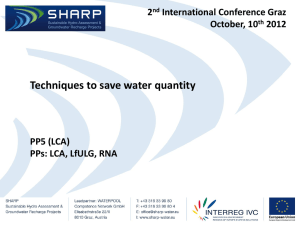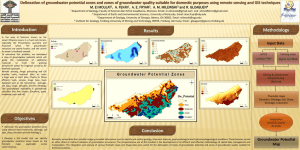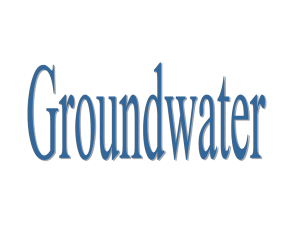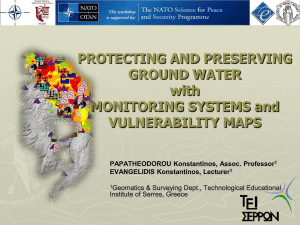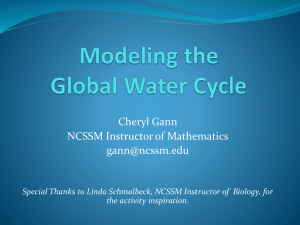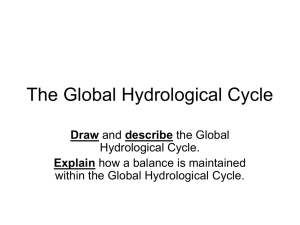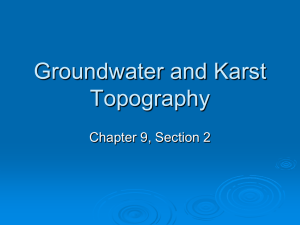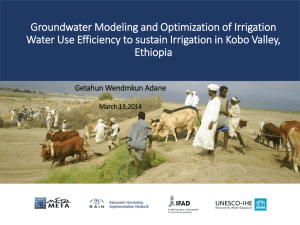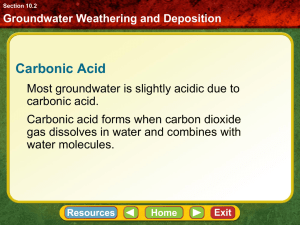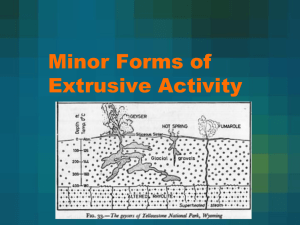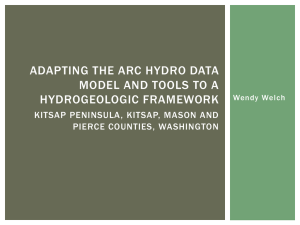Morning Plenary Keynote 1 - Ruth Kelman: UpGro programme
advertisement
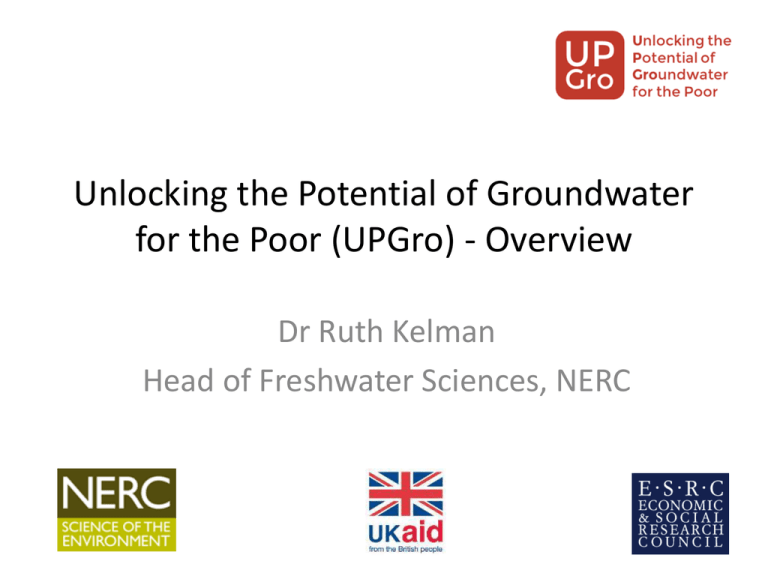
Unlocking the Potential of Groundwater for the Poor (UPGro) - Overview Dr Ruth Kelman Head of Freshwater Sciences, NERC Background • 7 year international research programme with a total budget of £12m • Focus on improving the evidence base around groundwater availability and management in SubSaharan Africa (SSA) to enable groundwater to be used in a sustainable way, benefitting the poor • This will be achieved through interdisciplinary projects linking the social and natural sciences • A key measure of success will be the uptake of the outcomes of the research by users Funders • Department for International Development (DFID) – DFID leads the UK’s effort to end extreme poverty. To enable this DFID commissions world-class research that directly improves people’s lives and makes this research freely available to those who can use it around the world. • Natural Environment Research Council (NERC) – the UK's largest funder of independent research, training and innovation in environmental science. Invests in world-leading science to help us sustain and benefit from our natural resources, predict and respond to natural hazards and understand environmental change. • Economic and Social Sciences Research Council (ESRC) – the UK’s largest organisation for funding research on economic and social issues. Supports independent, high quality research which has an impact on business, the public sector and the third sector. UPGro Aims and Objectives • Aim to provide the evidence base around groundwater availability and management in Sub-Saharan Africa (SSA) to enable groundwater to be used in a sustainable way in order to benefit the poor. • Programme guided by the following principles: – – – – Research excellence Development impact Addressing end-user requirements Creation of meaningful partnerships with African researchers and research institutions – Addressing gender, equality and related issues – Value for money Theme 1 Understanding the Resource • UPGro has 3 research themes • Theme 1, Understanding the Resource, will respond to the demand for improved understanding of groundwater availability in SSA, including – Recharge Processes: flow and storage mechanisms at local and catchment scale; impact of changes in climate and land use; impact of storms – Groundwater/Surface Water interactions: improved understanding of interactions that affect quality & quantity; improved integration in land surface models – Groundwater Quality: risks to groundwater quality; sources, sinks and transport of contaminants Theme 2 Governance, Institutions & Access • Theme 2 will enhance understanding of the social, economic and political dynamics surrounding groundwater use in SSA including – Governance and political economy: impact of local, regional, national and international structures – Ownership models: role of industry, implications of accumulation of water rights by fewer groups – Approaches to governance/institutions: what approaches might improve access and management – Impact of non-water related policies – Behavioural change: understanding how decisions are made, influences, how to bring about positive change – Tools for decision makers Theme 3 Impacts of Future Trends • The Impact of Future Trends theme will identify key drivers and stressors that may affect the availability of groundwater – Focus on trends on a decadal timescale (i.e. over the next 10-20 years and up to 50 years into the future) – Need to consider the interactions between different stressors as may give rise to unforeseen consequences – Examples of drivers and stressors include: • • • • Changes in land use and ownership Population growth and demographics Changing rainfall patterns New water management approaches and technologies Current UPGro Components • Catalyst Grants – small projects to enable the establishment of interdisciplinary partnerships and pilot studies – 15 projects funded which recently finished or are finishing – Impressive number of outputs already, with more planned! • Knowledge Broker – SKAT appointed to help facilitate the uptake of the research by policymakers and other stakeholders • African Groundwater Atlas and Literature Archive (led by BGS) – Literature archive launched in September 2014 – includes >5000 references, which are fully indexed, with many available as geo-referenced digital downloads. – Groundwater Atlas for Africa due to be published in late 2015 • Consortium Grants – large interdisciplinary projects that will deliver the bulk of the UPGro research….. Consortium Grants 5 Consortium Grants to be awarded and will start work early next year • Groundwater Risk Management for Growth and Development led by Dr Robert Hope, University of Oxford. • A hidden crisis: unravelling current failures for future success in rural groundwater supply led by Prof Alan MacDonald, BGS • Groundwater Futures in Sub-Saharan Africa led by Prof Richard Taylor, UCL • Experimenting with practical transition groundwater management strategies for the urban poor in Sub Saharan Africa led by Dr Jan Foppen, UNESCO IHE • Building understanding of climate variability into planning of groundwater supplies from low storage aquifers in Africa Second Phase (BRAVE-2) led by Dr Rosalind Cornforth, University of Reading Future Activities • Over next few months emphasis will be on getting the research consortia up and running • Over next year we will be exploring how to integrate the 5 consortia and developing the programme knowledge exchange and communication plans • Also expect to see more outputs from the catalyst grants • And further development of the African Groundwater Atlas and Literature Archive In other words expect to hear a lot more about UPGro in future! Further Information Further information, including summaries of each of the Catalyst projects, is available on the UPGro website http://upgro.org/ An overview of UPGro is on the NERC website at http://www.nerc.ac.uk/research/funded/programmes/upgro/ The African Groundwater Literature Archive is available at http://www.bgs.ac.uk/africagroundwateratlas/index.cfm Queries can also be sent to upgro@nerc.ac.uk
